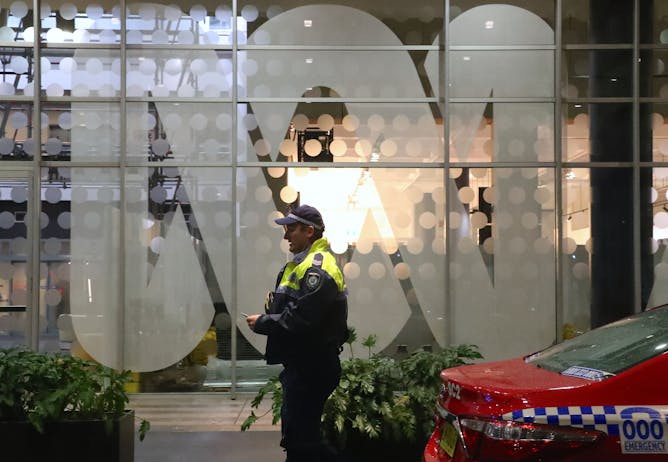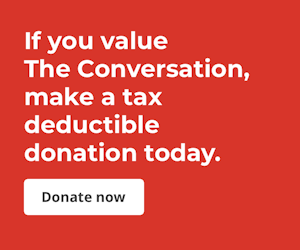|
|
|
Editor's note
|
|
Because we are so saturated in American culture, very few Australians realise that free speech in this country isn’t really a thing. It is not merely not protected – it’s far worse than that. If you read any of the vast array of laws that protect government secrets, disclosure in the public interest is discouraged, criminalised, punished, and deplored.
The closest we have ever come to having any positive protection of free speech is a series of High Court decisions which say that our Constitution creates an “implied freedom” to communicate so we can be informed citizens. But it is weak. It can be cancelled out by any law that is reasonable and proportionate to achieve another government objective. Former High Court judge Michael Kirby put it bluntly on the ABC yesterday: Australia has less protection of free speech than most Western countries.
Journalists have cared about this sorry state of affairs for a long time, but their pleas have been dismissed as mere self-interest. Yes, journalists are often victims of laws that protect secrecy and target whistleblowers. But what we want, and what everyone should want, is a healthy system of government that can serve the public interest by bringing important matters to light.
The journalist and academic Denis Muller expresses the anger felt by many when he writes that Australian Federal Police, in conducting raids on the ABC and the home of News Limited journalist Annika Smethurst, have allowed themselves to become a tool of “secretive, ruthless and vindictive executive government”. Michelle Grattan writes that Prime Minister Scott Morrison, a keen defender of freedom when it comes to religion, is now faced with the perception that Australia is hostile to a free press.
Meanwhile, Peter Greste, now a Professor of Journalism at the University of Queensland, has long been advocating for greater media freedom as part of a group called the Alliance for Journalists’ Freedom. In May they put out a paper suggesting we should create a law that enshrines media freedom as a positive aspect of our democratic system. Such a law would improve the balance between press freedom and national security, as well as provide a
measure of protection from future legislative incursion. (Disclosure: I was part of a round table discussion during which this idea was developed.)
It’s an idea that warrants serious consideration. It’s not a First Amendment, but it could take what many of us already imagine to be the case and turn it into reality.
|
Misha Ketchell
Editor & Executive Director
|

|
|
Top stories
|

The Reserve Bank and government have the means to keep us from recession. They’ll need the will.
Shutterstock
Richard Holden, UNSW
We've two options of keeping ourselves out of recession, neither of them easy. The government will have to abandon its determination to get the budget into surplus.
|

This week’s media raids, including on the ABC, have given Scott Morrison an unwelcome debate about media freedom.
AAP/David Gray
Michelle Grattan, University of Canberra
While Scott Morrison and other Liberals have been very concerned about protecting religious freedom, this week's raids have also brought unwelcome questions about media freedom.
|

Nearly one-fifth of the teachers we surveyed had symptoms of depression.
Photo by Ben White on Unsplash
Peta Stapleton, Bond University
Over half of Australian teachers suffer from anxiety and nearly one-fifth are depressed.
|

Don’t worry the puppy.
Shutterstock/The Vine Studios
Bronwyn Orr, University of Sydney
We know that failing to provide basic care like food and shelter is cruel, but we often overlook how disregarding the mental lives of our pets can also negatively impact their welfare.
|
|
|
Health + Medicine
|
-
Ross Hollett, Edith Cowan University; Natalie Gately, Edith Cowan University
New research shows some festival goers are willing to take a dodgy pill regardless of the test result. So, let's use pill testing to educate them and others about reducing their risk.
-
Ben White, Queensland University of Technology; Eliana Close, Queensland University of Technology; Lindy Willmott, Queensland University of Technology
As we sit on the cusp of voluntary assisted dying becoming legal in Victoria, we expect it won't always be simple for people who want it to access it – at least in the legislation's early days.
|
|
Arts + Culture
|
-
John Kinsella, Curtin University
For poet John Kinsella, veganism is an ethics of commitment. Living as a vegan, he writes, is not a holier-than-thou situation, but a move towards being more respectful of life.
|
|
Environment + Energy
|
-
Zoe Loh, CSIRO; Blagoj Mitrevski, CSIRO; David Etheridge, CSIRO; Nada Derek, CSIRO; Paul Fraser, CSIRO; Paul Krummel, CSIRO; Paul Steele, CSIRO; Ray Langenfelds, CSIRO; Sam Cleland, Australian Bureau of Meteorology
Carbon dioxide levels in the atmosphere are at 414 parts per million. But thanks to a recalculation of methane's warming power, the total amount of greenhouse gases is now equivalent to more than 500.
-
Tim Baxter, University of Melbourne
Australia's new emissions data for the December 2018 quarter show a rise on the previous quarter, although the raw figures actually dropped. Here's what that all means.
|
|
Cities
|
-
Katrina Raynor, University of Melbourne; Georgia Warren-Myers; Matthew Palm, University of Toronto
People on the minimum wage can afford only 2% of private rentals and only 1% if on the pension. Affordable housing requirements are often mandatory overseas, but Victoria is relying on negotiation.
-
Sebastian Fastenrath, University of Melbourne; Michele Acuto, University of Melbourne; Professor Lars Coenen, University of Melbourne; Svenja Keele, University of Melbourne
Melbourne and Sydney are members of 100 Resilient CIties, which the Rockefeller Foundation has said it will no longer fund. So what has the global network achieved? And what can we learn from this?
|
|
Science + Technology
|
-
Marc C-Scott, Victoria University
Apple's decision to end iTunes for its new desktop operating system is an attempt to retain and regain market share from rival media platforms.
|
|
Business + Economy
|
-
Tim Robinson, University of Melbourne
It it wasn't for a surge in government spending economic growth would be extraordinarily weak. As it is, it's the weakest since the global financial crisis.
|
|
Columnists
|
|
|
| |
Featured jobs
|

|
RMIT University — Melbourne, Victoria
|

|
University of Melbourne — Parkville, Missouri
|

|
University of Western Australia — Mount Waverley, Victoria
|

|
University of Sydney — Sydney, New South Wales
|
|
|
|
| |
| |
| |

|
| |
| |
| |
Featured events
|

|
The University of Sydney, Sydney, New South Wales, 2006, Australia — University of Sydney
|

|
The Capitol, 113 Swanston St, Melbourne VIC 3000, Melbourne, Victoria, 3000, Australia — RMIT University
|

|
Building #20, St Lucia Campus, The University of Queensland, Brisbane, Queensland, 4072, Australia — The University of Queensland
|

|
The University of Sydney, Sydney, New South Wales, 2006, Australia — University of Sydney
|
|
|
|
| |
| |
| |
| |
| |
|
|
|
|
|
|
|